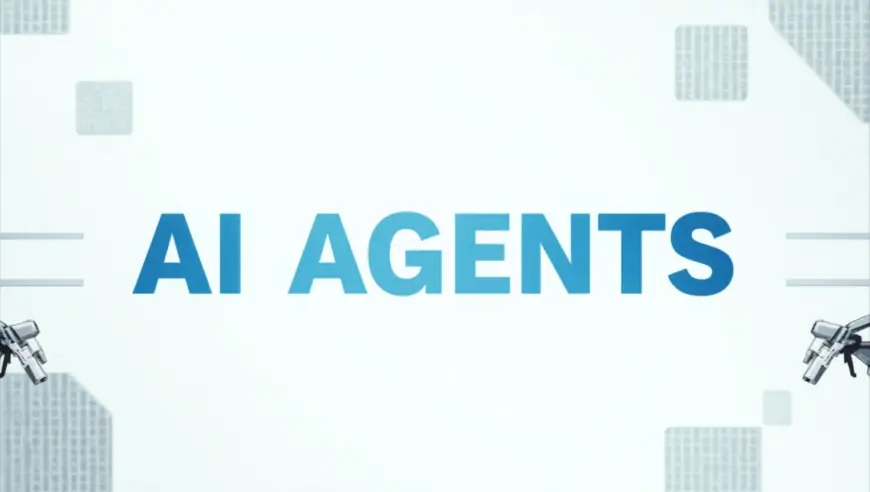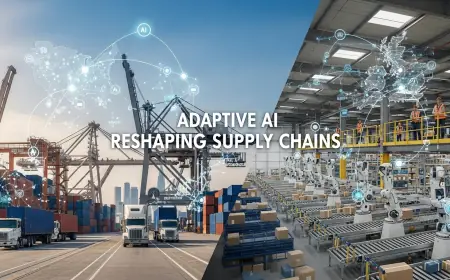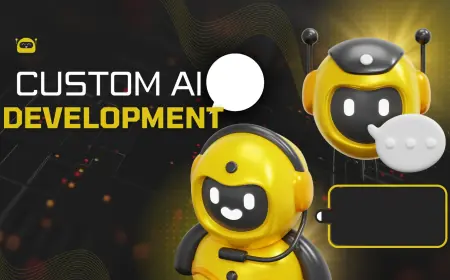What Are AI Agents? How They Work and Why They Matter
AI agent, what is an AI agent, how AI agents work, AI automation,

Artificial intelligence has come a long way from rule-based scripts to systems that can act, learn, and adapt on their own. One of the most practical and powerful outcomes of this evolution is the AI agent. But what exactly is an AI agent, and why are businesses, especially in India, paying so much attention to it in 2025?
This blog breaks down the basics of AI agents, explores how they function, where they add value, and why they’re becoming essential in industries like IT operations, HR, customer support, DevOps, and finance.
What Is an AI Agent?
An AI agent is a software entity that perceives its environment, makes decisions based on that input, and takes actions to achieve a defined goal. It might sound technical, but think of it like a virtual team member that knows what needs to be done, decides how to do it, and actually does it—without asking for constant instructions.
These agents can be simple (reacting to a single trigger) or highly intelligent (learning from data, planning actions, and adapting over time). They can work independently or in teams (known as multi-agent systems).
Some AI agents are built for straightforward tasks like responding to support tickets or routing data. Others are more complex, using machine learning to learn patterns, detect anomalies, or even predict user needs.
How Does an AI Agent Work?
Here’s a simplified step-by-step of what typically happens:
- Perception: The agent receives input—this could be an event, sensor data, a user command, or an API call.
- Interpretation: It understands the data and the context. For example, a message might mean a password reset is needed.
- Reasoning: Using logic, rules, or past experience, it figures out the best response.
- Decision-making: The agent picks an action. This might mean executing a workflow, sending a reply, or escalating the issue.
- Action: The task is performed.
- Learning (optional): If it’s a learning agent, it reviews the outcome and updates itself to do better next time.
In short, the AI agent senses, thinks, acts, and (sometimes) learns.
Types of AI Agents
There are several kinds of AI agents, and businesses use different types depending on the problem they want to solve:
- Simple Reflex Agents: They respond to certain conditions using “if-then” logic. For example, if a ticket is marked “urgent,” escalate it.
- Model-Based Reflex Agents: These have memory or state tracking. They understand more about what has happened before.
- Goal-Based Agents: They act with a target in mind. For example, finishing onboarding for a new employee.
- Utility-Based Agents: These consider multiple outcomes and pick the most efficient or cost-effective one.
- Learning Agents: These evolve based on feedback and new data.
- Hybrid Agents: Combine all of the above to handle more complicated tasks.
Why AI Agents Matter Today
AI agents are not just futuristic buzzwords—they're already transforming how work gets done:
- Speed: They work 24/7, so no more waiting for human responses or manual steps.
- Consistency: They don’t forget or get tired. Every action follows policy.
- Cost-efficiency: They reduce the need for repetitive manual tasks.
- Scalability: As demand grows, you can add more agents without increasing headcount.
- Compliance: AI agents can log every action they take, which helps with audits and regulatory requirements.
For startups and enterprises in India where both budget and agility matter, AI agents offer a clear advantage.
Where Are AI Agents Used?
AI agents are popping up in all kinds of tools and platforms:
- IT Service Management (ITSM): Agents can open support tickets, assign them based on priority, suggest fixes, and track resolution.
- Customer Support: Chatbots and voice bots act as front-line agents, providing real-time responses.
- Human Resources: Automate onboarding, leave approvals, and routine HR questions.
- DevOps: Help with CI/CD pipelines by triggering builds, reviewing code, and managing releases.
- Finance: Automate audits, prepare compliance reports, and even spot potential fraud patterns.
In tools like ServiceNow, Salesforce, and Microsoft Azure, AI agents are quietly powering everyday tasks behind the scenes.
Benefits That Can’t Be Ignored
Some of the real-world benefits Indian companies are experiencing with AI agents:
- Shorter resolution times in IT and customer service.
- Lower operational costs for routine tasks.
- Fewer human errors in documentation or routing.
- Greater employee focus on strategic, creative work.
- Faster onboarding and smoother compliance in regulated industries.
Common Challenges and Risks
Not everything is sunshine. There are some hurdles:
- Data privacy: Agents must be trained to handle sensitive info securely.
- Over-reliance: Humans should still review and supervise where needed.
- Complexity: Setting up hybrid or multi-agent systems requires careful planning.
- Ethical concerns: AI agents must be programmed to follow ethical norms and avoid bias.
The Future of AI Agents
Agentic AI is evolving fast. What's next?
- More learning: Agents that adapt in real time.
- Smarter integrations: Seamless work across apps and tools.
- Greater personalization: Agents that understand individual preferences.
- Collaborative systems: Teams of agents working together across departments.
And perhaps most importantly, agents that work alongside humans, not just instead of them.
Final Thoughts
AI agents aren’t just another tech trend. They’re real, they’re useful, and they’re making life easier for teams across India. Whether it's ITSM, HR, DevOps, or customer support, these little digital assistants are becoming an essential part of modern workflows.
For businesses looking to improve speed, cut costs, and stay competitive, investing in AI agents is a smart move.
FAQs
1. Are AI agents the same as chatbots?
Not always. While some AI agents are chatbots, many perform tasks behind the scenes without any direct conversation. Chatbots are often just one interface for agents.
2. Can small businesses use AI agents?
Absolutely. Many platforms offer lightweight agent-based tools suited for small teams. They can start with simple tasks like auto-replying or routing tickets.
3. What tools help you build AI agents?
Popular platforms include ServiceNow, Microsoft Power Automate, Salesforce, and open-source tools like Rasa for conversational agents.
What's Your Reaction?
 Like
0
Like
0
 Dislike
0
Dislike
0
 Love
0
Love
0
 Funny
0
Funny
0
 Angry
0
Angry
0
 Sad
0
Sad
0
 Wow
0
Wow
0

















































